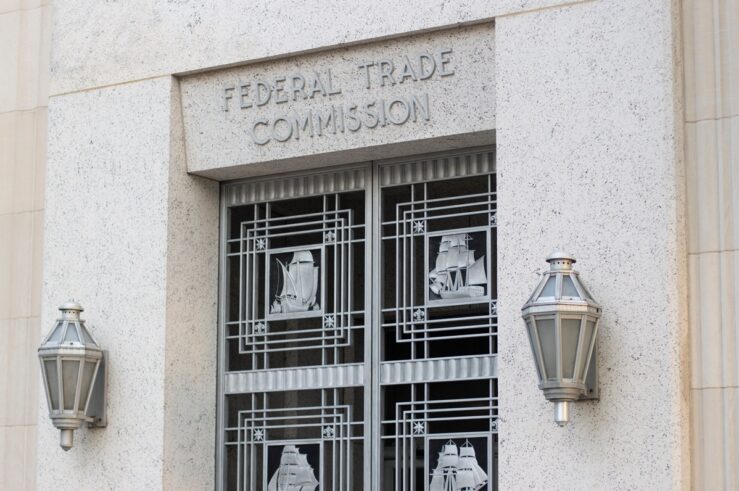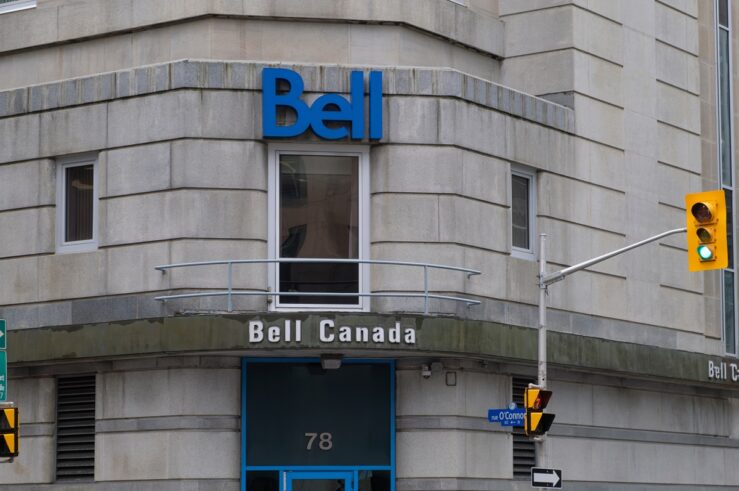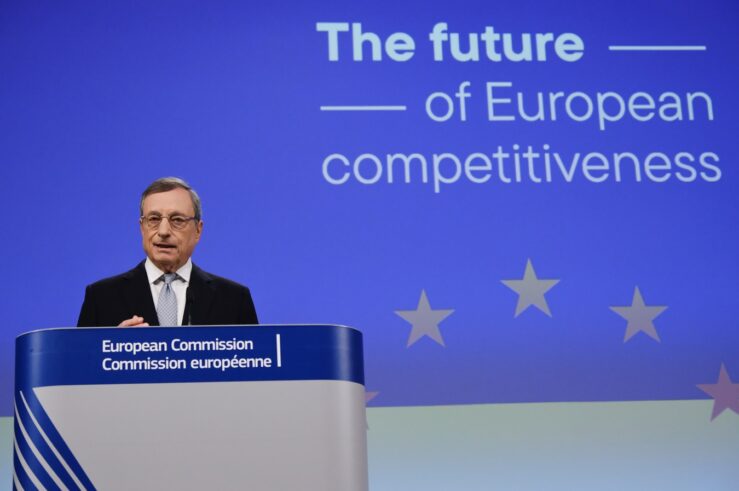Showing archive for: “Mergers & Merger Enforcement”
It May Be Time to Consider Reforming Global Competition Policy
As the incoming Trump administration contemplates ways to promote U.S. economic growth and innovation, it may wish to consider two possible new global competition-policy initiatives. These actions, if successful, could help protect American (and foreign) firms from foreign government impediments to effective competition. Antitrust Around the World Antitrust law (called competition law in other countries) ... It May Be Time to Consider Reforming Global Competition Policy
Reclaiming Antitrust
The United States is the birthplace of antitrust, starting with the enactment of the Sherman Antitrust Act in 1890. During the late 19th and early 20th century, cartels were common in Europe, while U.S. antitrust enforcers unraveled them. Only after World War II did European countries incrementally adopt competition law in various forms. Since that ... Reclaiming Antitrust
Why Trump May Consolidate Federal Antitrust Enforcement
President-elect Donald Trump’s new “Department of Government Efficiency” has been tasked with providing advice and guidance on reducing government waste and restructuring federal agencies. One act of restructuring that may warrant consideration would involve consolidating all federal antitrust enforcement within the U.S. Justice Department (DOJ). There are strong arguments that this would reduce waste. In addition, ... Why Trump May Consolidate Federal Antitrust Enforcement
Why It May Be Time to Consider a Merger Policy Reset in 2025
The Biden administration’s federal antitrust regulators—the U.S. Justice Department (DOJ) and the Federal Trade Commission (FTC)—have been widely perceived as actively discouraging mergers and acquisitions. This reflects the rejection of a longstanding bipartisan understanding that government would only oppose proposed M&A transactions that are likely to harm competition. The Biden approach arguably threatens to harm the ... Why It May Be Time to Consider a Merger Policy Reset in 2025
European Competition Law Is Lost at Sea
Imagine a world where digital-competition policy was guided by a desire to foster startup activity, competitiveness and, ultimately, growth. Competition policymakers would promote market conditions that enable new digital services to rapidly launch, gain user traction, and achieve greater scale. All of this would improve productivity, drive down prices for existing services, and help to ... European Competition Law Is Lost at Sea
Bell Canada’s Proposed Acquisition of Ziply: Regulators May Be the Least of Their Worries
Bell Canada, Canada’s largest communications company, recently announced plans to acquire Ziply Fiber, a fiber-internet provider in the Pacific Northwest. The C$7 billion deal represents Bell’s strategic play to expand its fiber footprint into the United States and to capitalize on growth opportunities in what it sees as an underserved U.S. fiber market. The proposed ... Bell Canada’s Proposed Acquisition of Ziply: Regulators May Be the Least of Their Worries
The FTC World Keeps On Turning
You’re no doubt aware that we’ve had a presidential election since my last column. Agency news seems pallid, in comparison, but those of you who’ve come here looking for deep insights into what it all means are liable to be disappointed, not to mention zero in number. “The Meaning of Life” is a movie by ... The FTC World Keeps On Turning
The View from India: A TOTM Q&A with Shivanghi Sukumar
Could you tell us a bit about your background and how you got interested in digital competition regulation? I am a competition lawyer, and have been practicing competition law in India since the early days of its enforcement. A big part of my work has been related to the enforcement of behavioral provisions, and I’ve ... The View from India: A TOTM Q&A with Shivanghi Sukumar
Draghi Report Highlights Why to Be Wary of the ‘Brussels Effect’
Everyone in Europe, and across the international competition-law sphere, seems to have their own interpretation these days of former Italian Prime Minister and European Central Bank President Mario Draghi’s recent report “The Future of European Competitiveness” (a.k.a., the “Draghi report”). And, of course, those various interpretations, unsurprisingly, inevitably match the interpreter’s policy preferences. This is ... Draghi Report Highlights Why to Be Wary of the ‘Brussels Effect’
Antitrust at the Agencies: The Meat of the Matter Edition
The Federal Trade Commission (FTC) issued comments Sept. 11 in support of a proposed U.S. Department of Agriculture (USDA) rule that “seeks to clarify the scope of what constitutes unfair practices under the Packers and Stockyards Act (PSA), which assures fair competition and fair trade practices to protect farmers, ranchers, growers, and consumers.” In the ... Antitrust at the Agencies: The Meat of the Matter Edition
Big Federal Antitrust Cases Heat Up
The U.S. Justice Department (DOJ) and the Federal Trade Commission (FTC) are advancing two major antitrust cases that will have significant implications for the American public. The DOJ, joined by eight states, announced Aug. 23 that it was suing RealPage Inc. for an “unlawful scheme to decrease competition among landlords in apartment pricing and to monopolize ... Big Federal Antitrust Cases Heat Up
Vacatur’s All I Ever Wanted
Yep, more about noncompetes. I’ve been at this a bit. I’m aware. Just last week, and then again here, here, here, here, and here at Truth on the Market; here in a more formal journal article; and here with my International Center for Law & Economics (ICLE) colleagues and scholars of law and economics. Maybe ... Vacatur’s All I Ever Wanted
















